HUMAN RIGHTS DAY
The world needs activists, who in turn need commonality for success and survival
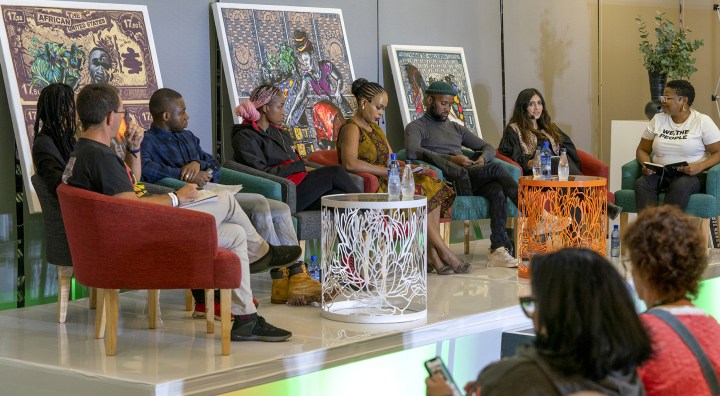
With both South Africa and the global community facing various crises, from poverty and food insecurity to conflict and climate change, there is not only a need for more voices and action within activism spaces, but also cooperation and support among the different groups within civil society. In a Maverick Citizen panel discussion on Monday, representatives of a range of civil society movements explored what it means to be an activist.
The current times — filled as they are with uncertainty and suffering — require all or most people to be active rather than passive. Though those involved in activism will become weary, they should not step back from the struggle, according to Delani Majola, communications officer for the Ahmed Kathrada Foundation. The need for activism in today’s world is far more urgent than it ever was before.
“It means that we need to… find linkages with one another, we need to recharge each other. I think we will not achieve anything — so whether it’s small victories, small gains — but we will not achieve anything if we sit back and become passive and give in to defeat,” said Majola.
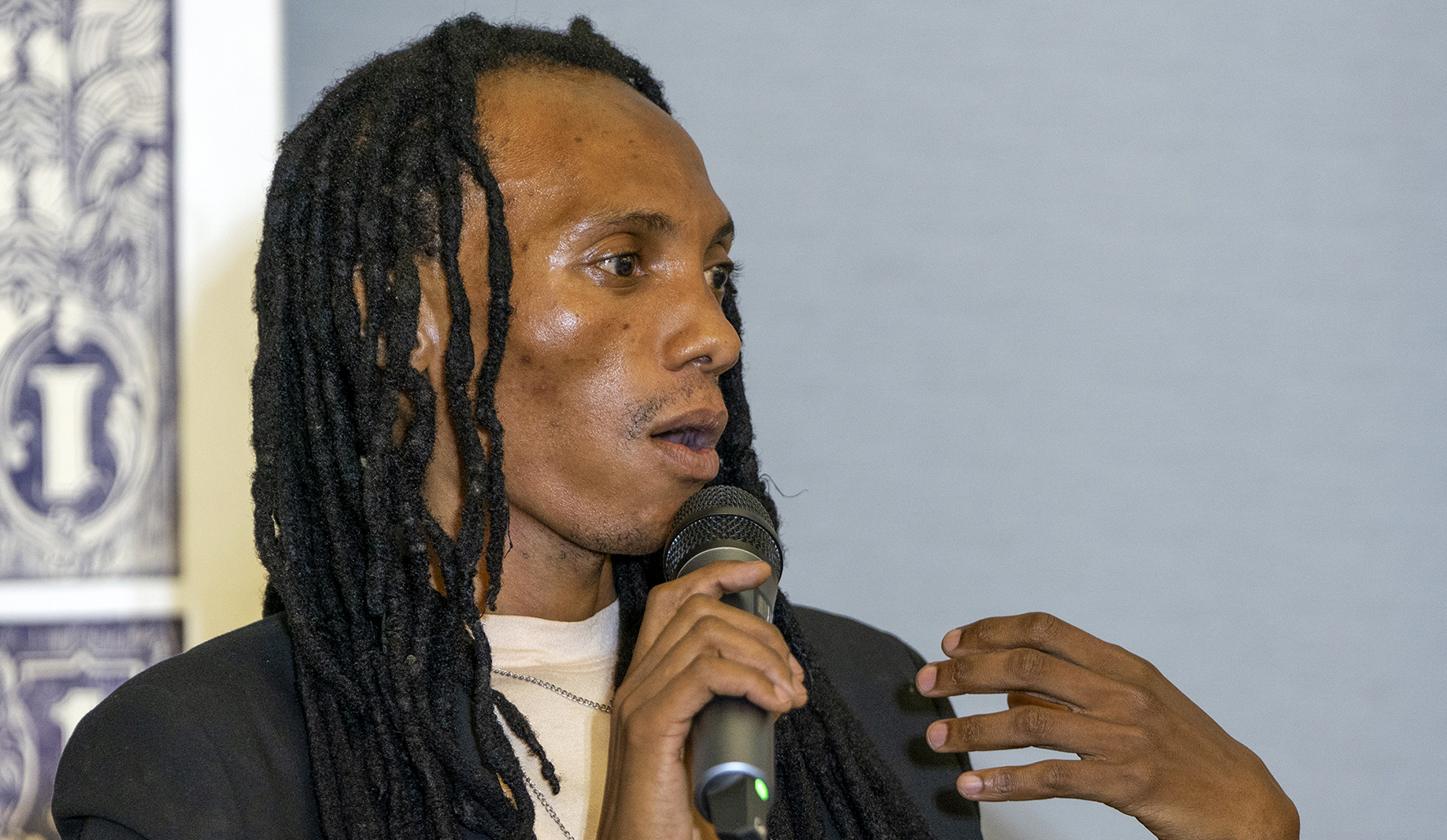
Delani Majola, communications officer for the Ahmed Kathrada Foundation addresses the audience. Johannesburg, 21 March 2022. (Photo: Shiraaz Mohamed)
Majola was speaking at a Maverick Citizen panel discussion on activism on the final day of the Constitution Hill Human Rights Festival, which coincided with National Human Rights Day. The panellists discussed their own experiences of activism, including their reasons for becoming involved in various causes and the challenges inherent in these spaces.
Among the speakers involved in the discussion were Nkateko Blessing Muyimane, a medical student who recently fled Ukraine and started the non-governmental organisation, SA Safe Corridor for Students; Jennifer Matibi, founding member of Nirvana, an initiative that assists young women of the Johannesburg inner city to create spaces in which they can grow; Thandeka Gqubule-Mbeki, former SABC economics editor and current PhD student at the University of Johannesburg; Siyabonga Ndlangamandla, board member at Makers Valley Partnership; and Shaeera Kalla, board member of Section27 and member of the #PayTheGrants campaign.
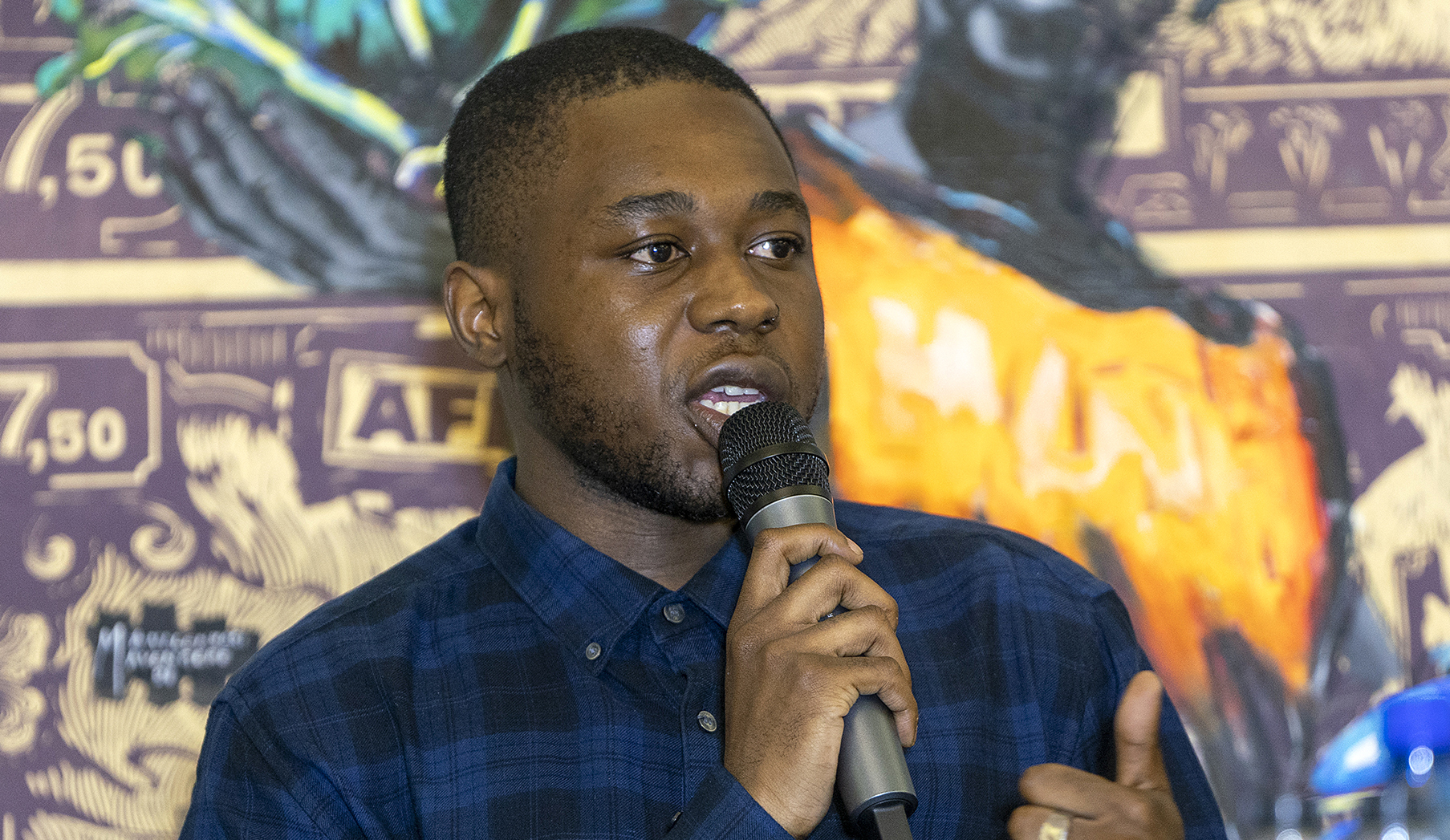
Nkateko Blessing Muyimane, a medical student who recently fled Ukraine and began an NGO, SA Safe Corridor for Students, to assist those students still trapped in the country.
Johannesburg, 21 March 2022. (Photo: Shiraaz Mohamed)
The discussion was facilitated by Maverick Citizen editor Mark Heywood and journalist Zukiswa Pikoli.
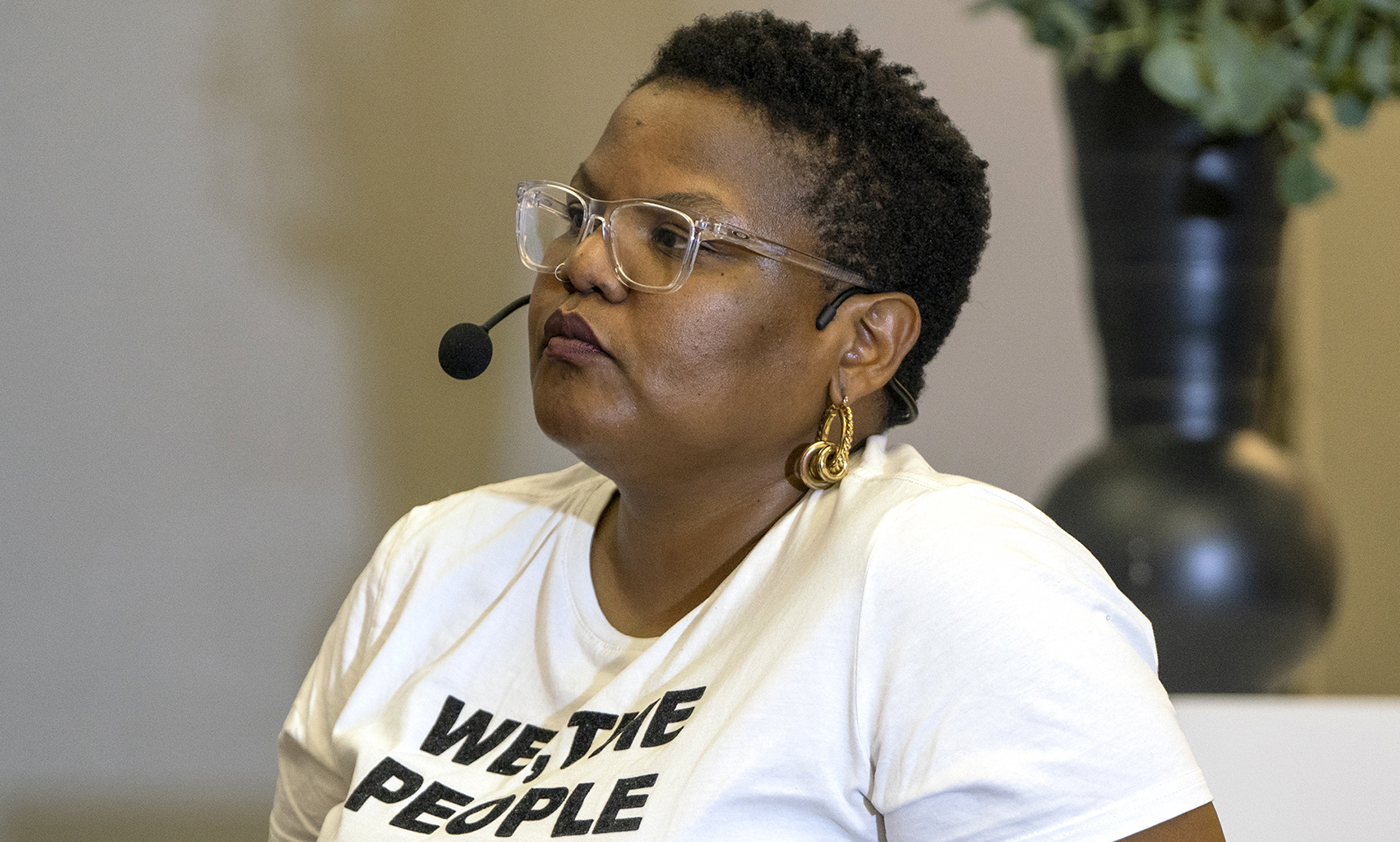
Zukiswa Pikoli, journalist with Maverick Citizen. Johannesburg, 21 March 2022. (Photo: Shiraaz Mohamed)
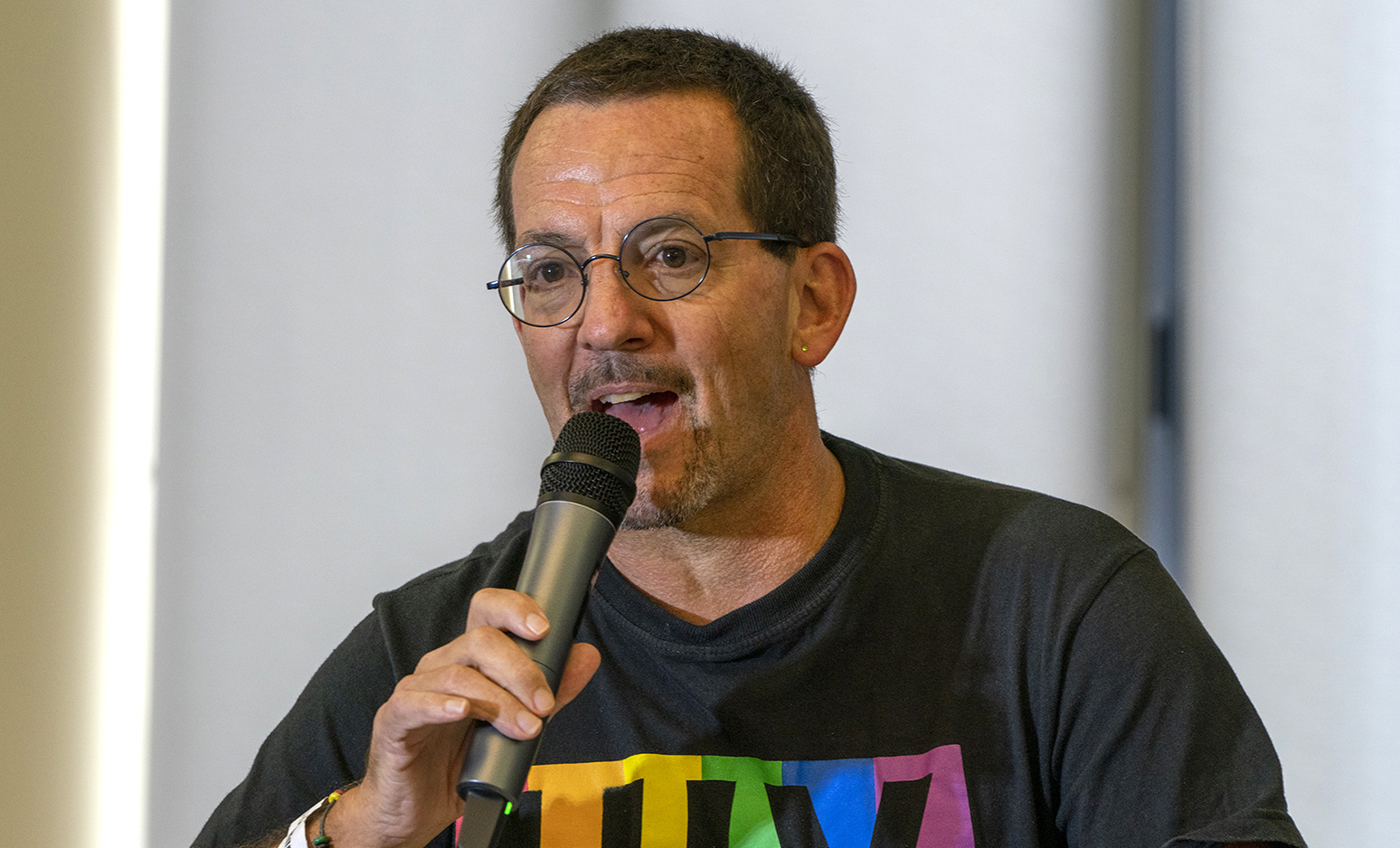
Mark Heywood, editor of Maverick Citizen addressing the audience. Johannesburg 21 March 2022. (Photo: Shiraaz Mohamed)
Spaces for activism have become smaller in recent years, according to Kalla. This not only calls for more voices and action in these spaces but also cooperation and support among the different groups within civil society. There are, she emphasised, links between the various causes for which people advocate — from basic income and food sovereignty to free media and mental health.
“Being a good activist is really about also building relationships, and I think those spaces that one creates are filled with those relationships,” said Kalla. “[T]hat’s how you sustain momentum and that’s how you figure out how to take one idea and create an intersectional… spectrum, a spectrum of issues that support it, and they take it to the next level.”
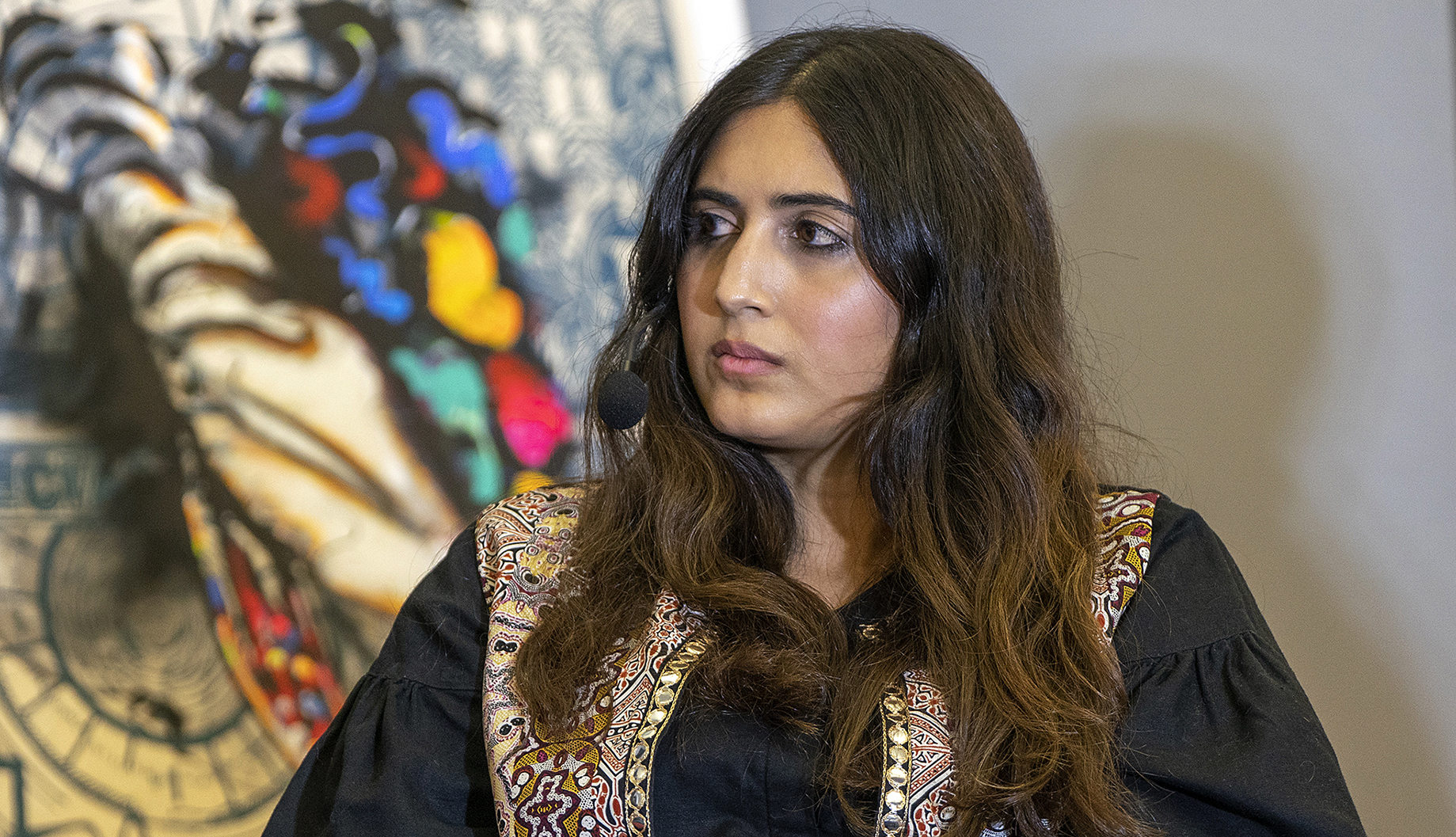
Shaeera Kalla, board member of Section27. Johannesburg 21 March 2022. (Photo: Shiraaz Mohamed)
She added that the “typical image” of an activist should not override the everyday struggles that people face in society. While activism is a choice for some, for others it is a lived reality; a state of fighting a system that was built against them.
Becoming an activist
Activism should come from a place of compassion, according to Muyimane. He defines activists as those who want to make an environment a better place.
The decision of a person to throw themselves into a course of action is often very personal, said Gqubule-Mbeki. It can be rooted in their worldview, an innate sense of justice or outrage at something they have witnessed or experienced.
Gqubule-Mbeki’s own journey as an activist began with her experience of forced removals under apartheid. She saw both her grandparents and her parents lose their homes to this unjust policy.

Thandeka Gqubule-Mbeki, PhD student and part-time lecturer at the University of Johannesburg addressing the audience. Johannesburg, 21 March 2022. (Photo: Shiraaz Mohamed)
“So, [activism is] partly personal, partly a decision to make your beliefs publicly relevant and to impact policy and how human beings relate to each other, and how societies are constructed,” she said.
Over and above the “imagination” it takes to stand up for something, Kalla believes activism is about sustaining human beings, creating a political culture and ensuring that people feel safe. In this way, separate causes are united by their common drive to see people live with dignity.
“It’s about making sure people feel seen, feel safe and feel cherished, whether or not you’re personally affected, in a direct sense,” she said. “[T]he fact that you are a human being, and you can have empathy and you can see an unjust system and want to do something about it, is enough to start trying to understand what it is that you can contribute to, in whatever form.”
Enduring challenges
There is currently a large pushback against democracy defenders by capital, corporations and institutions, according to Gqubule-Mbeki. If the victimisation of human rights activists is to be addressed, there is a need for an examination and improvement of certain laws, including the Protected Disclosures Act and Witness Protection Act.
“We must ratchet up the consequences of acting against activists, vulnerable human beings, women, and so on. So, I think that’s one of the challenges that we tend to have going forward,” said Gqubule-Mbeki.
Another challenge related to activism is the toll it can take on people’s mental health. Kalla recalled a period in her time as an activist when she struggled to eat and live healthily, saying that it taught her about creating sustainable spaces within movements.
“So, now with what we’ve done around #PayTheGrants, it’s a constant question [of] how do we share responsibility in a way that doesn’t put too much on one person’s shoulders or two people’s shoulders,” said Kalla.
It is important to address the issue of “toxic behaviour” within movements, should it arise, she continued. “A lesson that I’ve learned is that you have to be tender. So, tenderness is fundamental, but firmness is equally fundamental, so that you don’t create an unhealthy space, then it collapses.”
Being a young woman whose activism has brought her into meetings dominated by older, more experienced people, Matibi has sometimes questioned her own standards and achievements. She manages these uncertainties by building supportive networks within civil society.
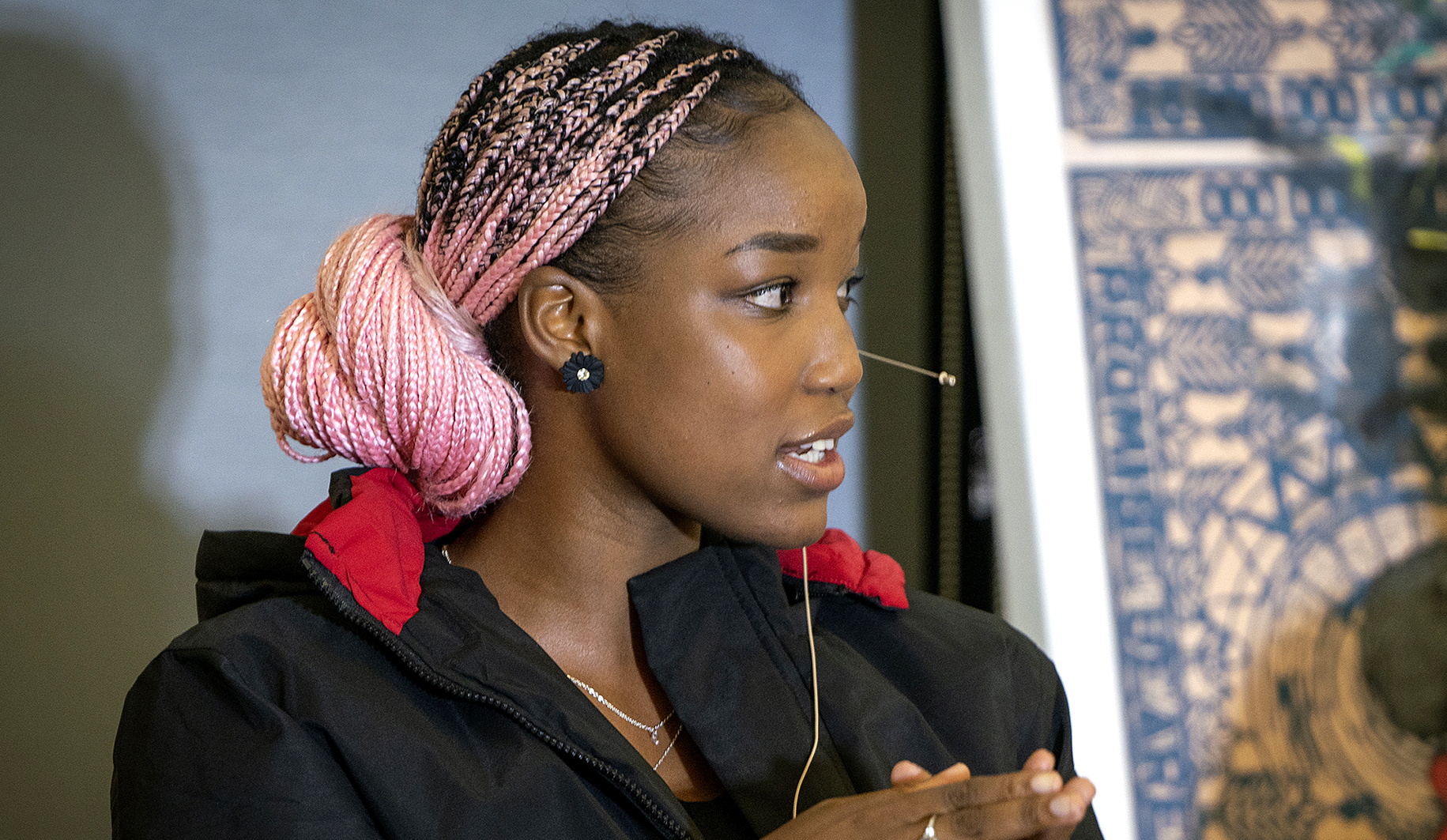
Jennifer Matibi, founding member of Nirvana, an initiative that assists young women of the Johannesburg inner city to create spaces in which they can grow.
Johannesburg, 21 March 2022. (Photo: Shiraaz Mohamed)
“Being involved with other activists, being involved with other people that are doing the work that you’re currently doing, …I have people that I can reach out to who are actually in the space and doing the kind of work that I’m doing,” said Matibi.
Remaining humble
As an activist, it is important to guard against the potential for hubris, said Gqubule-Mbeki. This can be done through supporting other activists and offering solidarity to those who are struggling for change. However, it also requires a keen awareness of those representatives of commercial and state interests who might try and “sidle up” to a cause.
“So, when you read vested interests, then you are able not to [sell out] to money, because money – once it comes into your cause and is not properly governed – it becomes toxic and [those providing the money] can go to communities and you can give them a disproportionate power,” said Gqubule-Mbeki. “And then when the state sidles up to you, you have to be equally weary, but also conscious that this is the state’s job. The state is the collective people.”
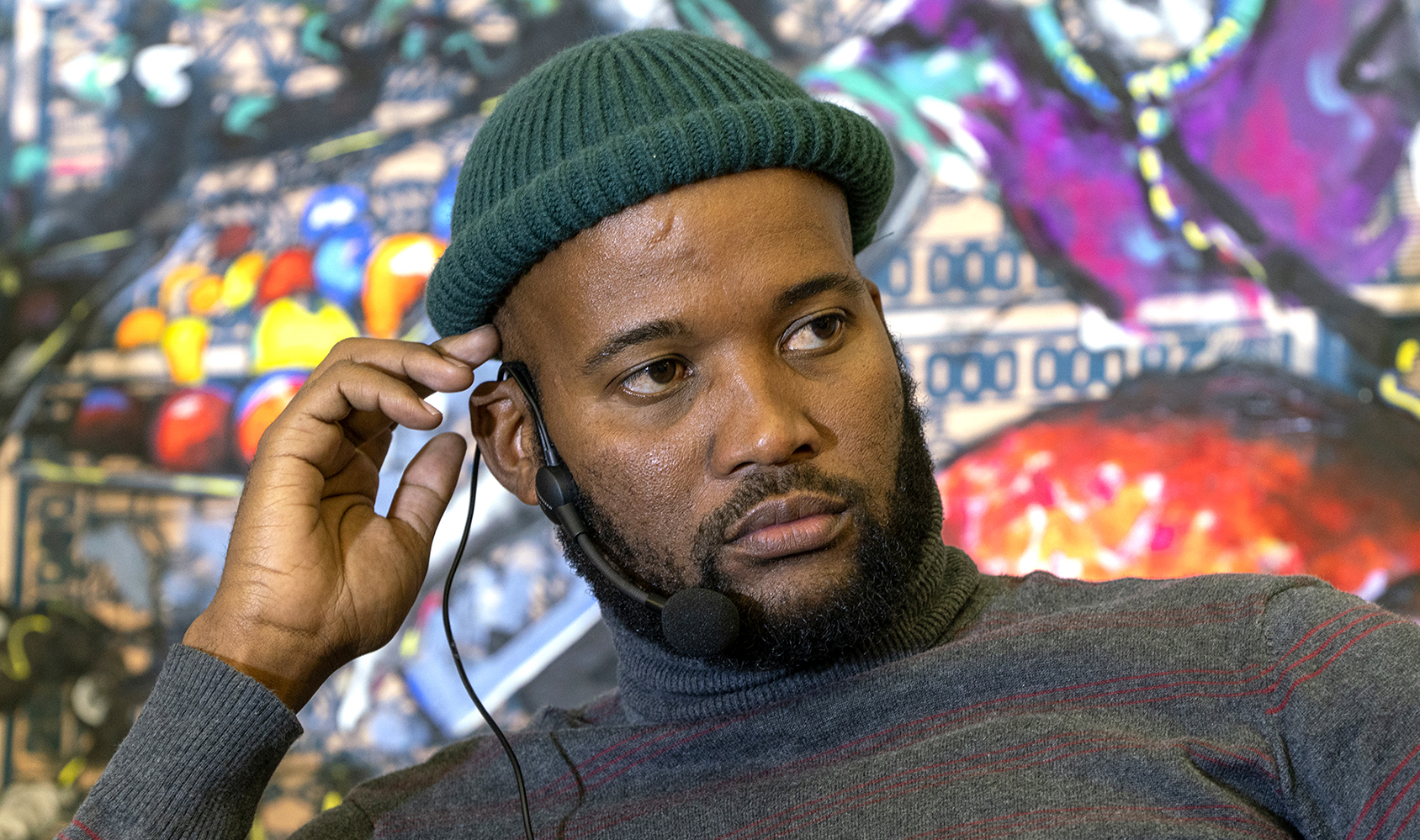
Siyabonga Ndlangamandla, board Member at Makers Valley Partnership as he listens to other panelists talk. Johannesburg, 21 March 2022. (Photo: Shiraaz Mohamed)
Activism is not an exclusive or an elite phenomenon, according to Majola. It can take the form of signing a petition, joining a demonstration or simply participating and engaging as part of an audience.
“[W]e shouldn’t sanctify or glorify activists, because ultimately, we’re still human,” he said. “So, I think anybody can get into activism, and those who are already in, I think it’s important to base and ground your movements in fact and truth.” MC




















 Become an Insider
Become an Insider
Comments - Please login in order to comment.